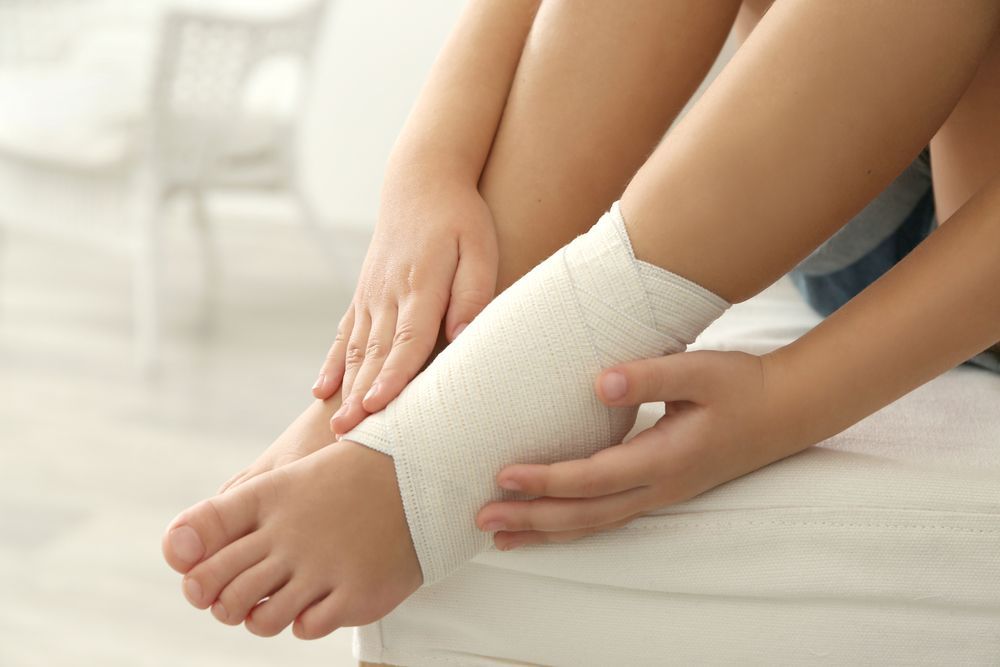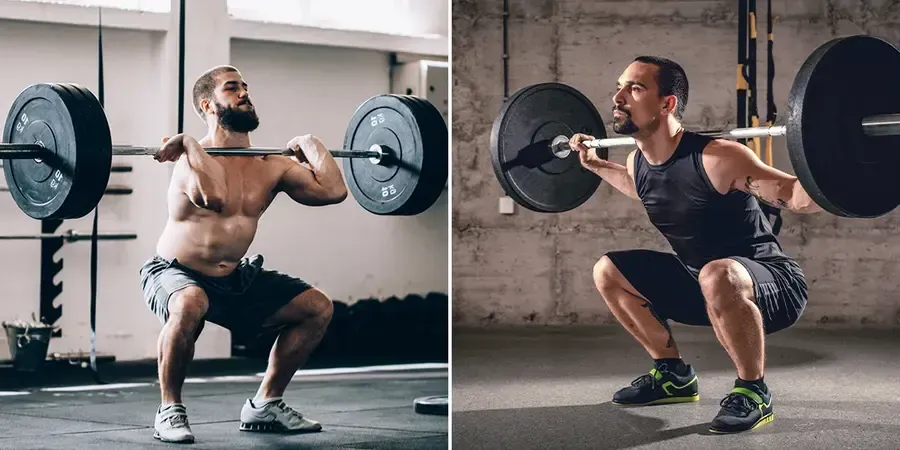Address: Level 1, 135 Daws Rd St Marys
Call Us Today! 0450 877 731
The Role of Manual Therapies in Preventing Overtraining at Active Balance

The Role of Manual Therapies in Preventing Overtraining at Active Balance
Here at Active Balance, we understand that the pursuit of fitness and peak performance can sometimes lead to the dark side of training: overtraining. While pushing one's limits is part of the journey to better health, overtraining can lead to decreased performance, increased injury risk, and a host of other physical and mental health issues. This is where manual therapies, including physiotherapy, remedial massage, and myotherapy, become invaluable tools in your fitness regimen.
Let's delve into how these therapies can help prevent overtraining.
Understanding Overtraining:
Overtraining syndrome occurs when the body does not have enough time to recover from the stress of training, leading to:
- Persistent fatigue
- Decreased performance despite increased effort
- Increased susceptibility to injuries
- Mood disturbances
- Sleep disturbances
How Manual Therapies Help:
1. Physiotherapy:
- Recovery Enhancement: Physiotherapists at Active Balance assess and design recovery protocols that include specific exercises, stretches, and mobilisation techniques that aid in quicker recovery between sessions, reducing the chance of overtraining.
- Injury Prevention: By addressing biomechanical issues and muscle imbalances, physiotherapy helps prevent injuries that might occur due to the repetitive stress of training.
- Education: Our physiotherapists educate on the importance of rest, recovery, and balanced training, helping athletes understand their body's signals for overtraining.
2. Remedial Massage:
- Muscle Recovery: Remedial massage at Active Balance targets muscle tissue, improving blood flow, reducing muscle tension, and breaking down scar tissue or adhesions that can form from overuse.
- Stress Reduction: Physical stress from overtraining can be compounded by psychological stress. Massage therapy helps in reducing cortisol levels, promoting relaxation and mental recovery.
- Pain Management: By managing pain and soreness, remedial massage can prevent the cycle where pain leads to compensatory movements or overcompensation in other muscle groups, which can lead to further issues.
3. Myotherapy:
- Trigger Point Therapy: Myotherapists at Active Balance specialise in finding and treating trigger points, which are often the result of repetitive strain and can lead to pain and decreased performance if not addressed.
- Nerve Mobilisation: Overtraining can cause nerve irritation or entrapment. Myotherapy techniques can help mobilize nerves, reducing symptoms like numbness, tingling, or pain that can halt training.
- Muscle Function: By improving muscle function through focused manual therapy, myotherapists help in maintaining muscle balance, which is crucial in preventing the compensatory patterns that lead to overtraining injuries.
Integrating Manual Therapies into Your Routine:
- Regular Sessions: Schedule regular sessions with our therapists at Active Balance to keep your body in check, especially during periods of intensified training.
- Post-Event Recovery: After competitions or intense training blocks, consider manual therapy as part of your recovery strategy to return to normal training without the risk of overtraining.
- Listening to Your Body: Manual therapy sessions provide an opportunity to discuss symptoms of overtraining, allowing for adjustments in your training plan.
- Combining Therapies: Often, a combination of physiotherapy, remedial massage, and myotherapy can be more effective than any single therapy in managing and preventing overtraining.
Conclusion:
At Active Balance, we're committed to not just treating injuries but preventing them. Manual therapies play a critical role in this preventative approach by ensuring your body is ready for the demands of your training, both physically and mentally. By incorporating these therapies into your training regime, you're not only investing in recovery but also in the sustainability of your training, leading to better performance and longevity in your sport or fitness activity.
Book an appointment with us to explore how we can tailor a manual therapy plan to keep you balanced, preventing the pitfalls of overtraining. Remember, the goal is not just to train harder but to train smarter.
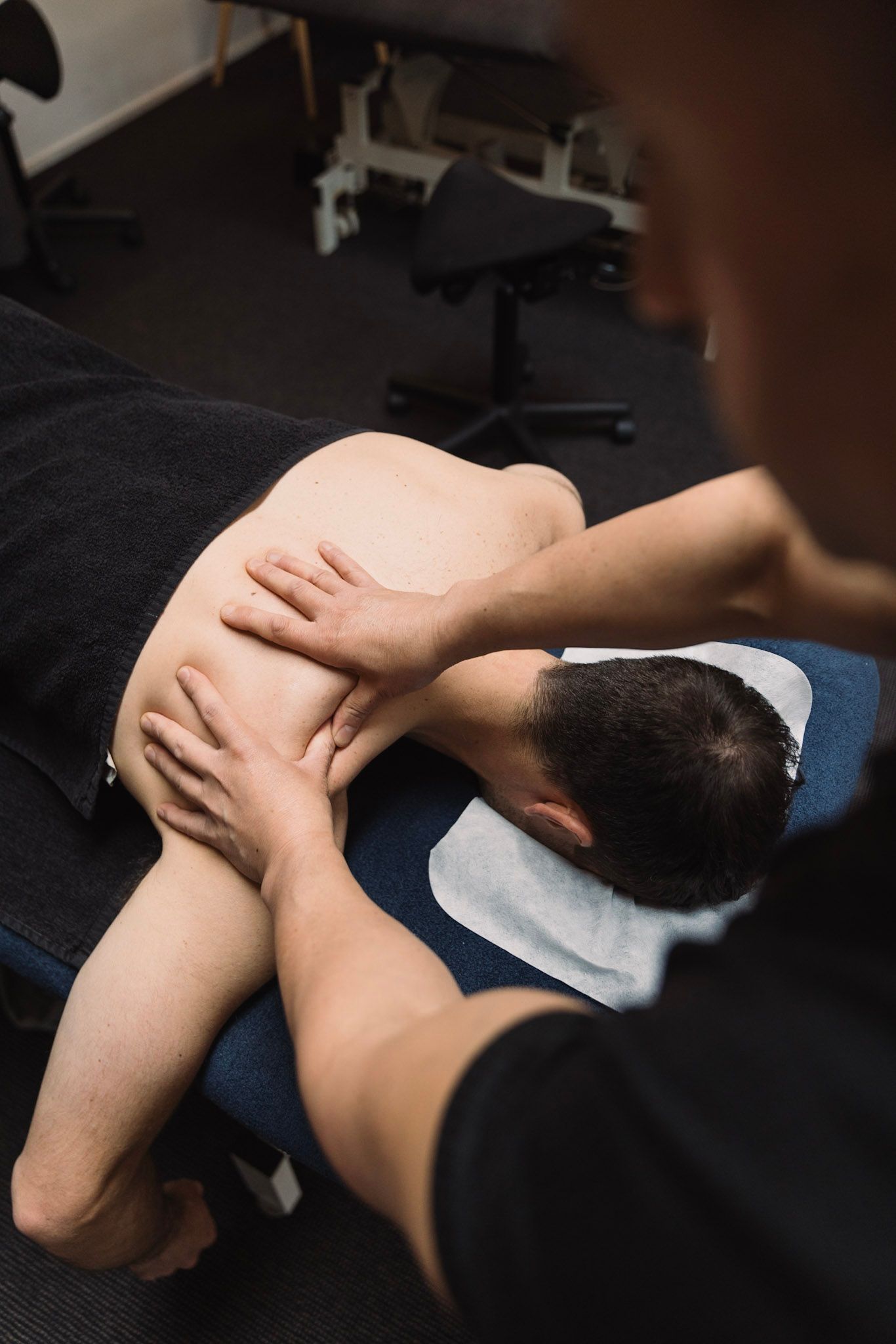
March 26, 2025
Is it normal to be sore after Myotherapy Treatment During and immediately after treatment During the initial 15-30 minutes of myotherapy treatment, pain inhibition and movement facilitation will occur. In the later stages of treatment (greater than or equal to 15-30 minutes), analgesia with inhibition of autonomic and motor functions will occur. The result will be sympathoinhibition and muscular relaxation. Vasodilatation in the injured muscle tissue will also occur, promoting the normal healing processes. The resulting response after treatment are varying degrees of fatigue, disorientation, lethargy and relaxation. Often patients will state that they feel "high" post treatment. There is also a cutaneous reddening of the skin and a sudomotor reaction which creates an increase in perspiration over the entire body. 12 Hours Post Treatment The immediate post-myotherapy responses subside after a few hours. Roughly 12 - 72 post treatment, the patient will feel muscular aching which feels similar to delayed onset muscle soreness. The intensity of the muscle soreness varies depending upon the chronicity of the condition. The more chronic the pathology, the more intense the muscle soreness and the longer it lasts. Clinically it is not unusual for patients to report a return of the original injury acute symptoms, i.e., return of arm or leg pain or paresthesia that has been absent. Management With continued treatment, the post-myotherapy local soreness lessens with a concomitant drop in pain complaint and an increase in pain-free function. With treatment once every 10-14 days (needed to allow the body to go through the acute healing processes), the superficial muscle hardening decreases, allowing treatment of the deeper muscle hardening which clinically appears to be the chief cause of pain. On many occasions, a patient's symptoms including paresthesia and referred pain is reproduced when the pathological muscle hardening is located. A stretching program is initiated to facilitate a continued increase in circulation and to promote lengthening of shortened muscles and related soft tissues. It is important to note that the techniques should stretch as much of the anatomical muscular chain as possible. Stretching individual muscles does not appear to be as effective. Once the muscles are able to shorten and lengthen without stimulating the nociceptors, the patient will have less pain when functioning or performing therapeutic exercises. At this point, a comprehensive reconditioning program can be initiated to deal with the usual physical deconditioning that affects the chronic pain patient. Continued myotherapy visits of increasing intervals between treatments as the muscle hardening decreases is recommended to completely treat the individual and restore function.
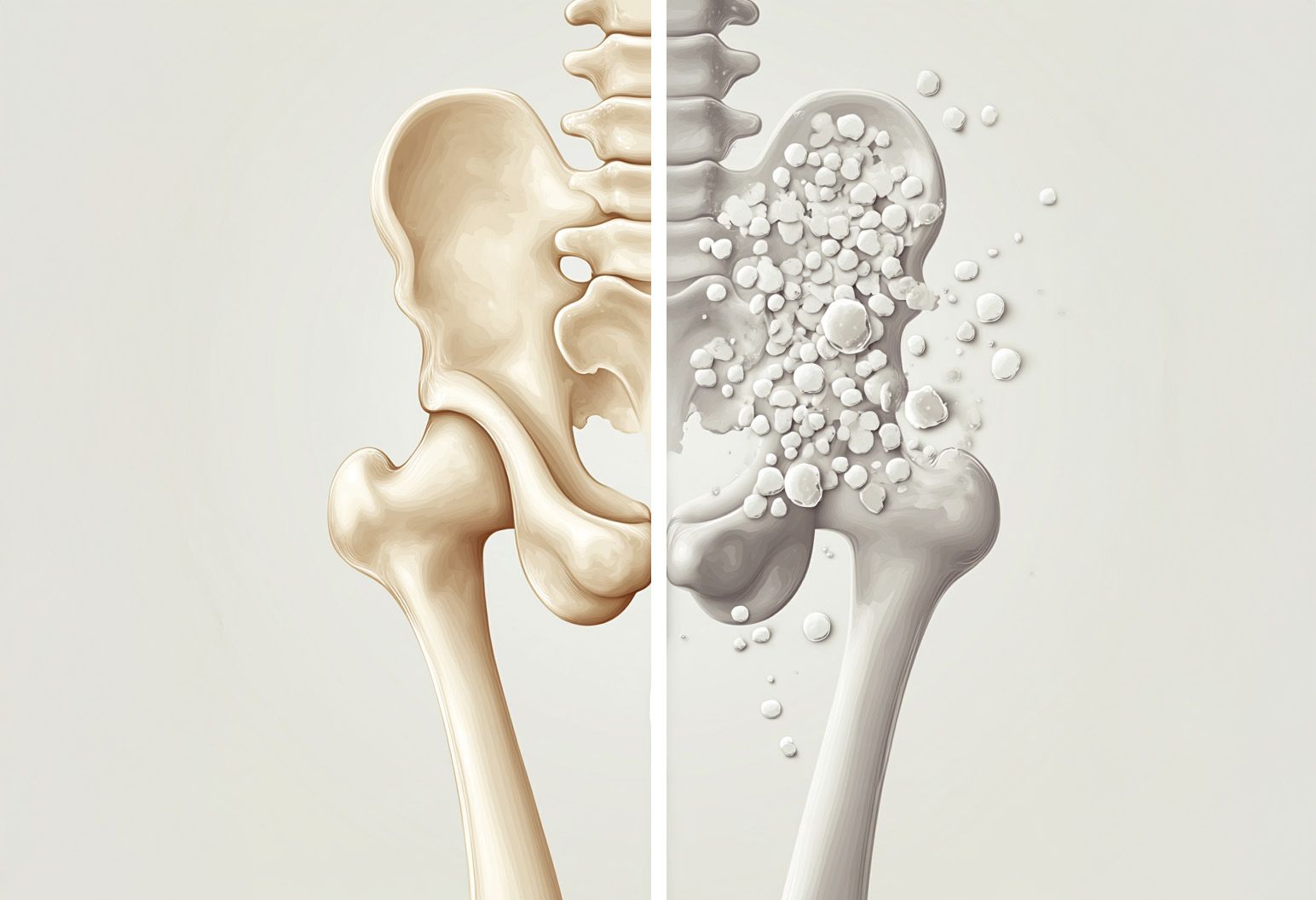
March 26, 2025
Is high-intensity impact and resistance training safe for osteoporosis? Osteoporosis makes bones weak and prone to fractures, leading many to believe that gentle, low-impact exercises are the only safe option. Yet, recent studies, such as the notable LIFTMOR research, challenge this assumption, suggesting that high-intensity impact and resistance training could be not just safe but beneficial for individuals with this condition. The main concern with high-intensity exercise for those with osteoporosis has been the heightened risk of fractures. But bones adapt and strengthen in response to stress. The LIFTMOR study, conducted with postmenopausal women with low bone mass, demonstrated that with appropriate supervision, high-intensity training can significantly improve bone density and reduce the risk of injury. The LIFTMOR research provided evidence that high-intensity progressive resistance training (HiPRT), paired with impact loading, improved bone density and functional performance in a safe manner. This finding indicates that high-intensity training, under careful guidance, can be a potent intervention for osteoporosis. Professional supervision is key to safely introducing high-intensity exercises. Exercise physiologists are trained to design individualized exercise plans, considering the extent of bone density reduction and overall health. A safe introduction to high-intensity impact and resistance training involves thorough assessments—understanding your health and bone density is essential for customizing your exercise program. Gradually increasing exercise intensity allows the body to build strength and adapt safely. Correct exercise form is crucial to reduce injury risk and ensure the effectiveness of the exercise. Regular reviews of your exercise response facilitate timely adjustments to the program. Guided and informed by health professionals, high-intensity impact and resistance training can be integrated into an osteoporosis management plan. The LIFTMOR study’s insights provide a new perspective on how exercise can be used to manage and potentially improve bone health and function.
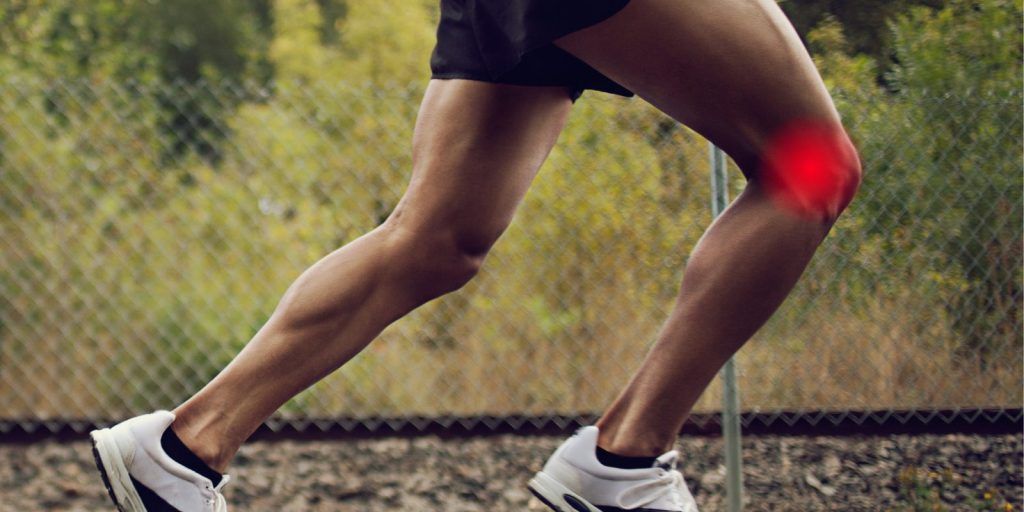
March 26, 2025
What is it? Iliotibial band syndrome is where a tendon called the iliotibial band gets irritated or swollen from rubbing against your hip or knee bones. The tendon is on the outside of your leg, and it goes from the top of your pelvic bone down to your knee. It rubs against your bones when it gets too tense/overworked. It then can create knee pain on the outside of your knee. In clinic we have seen this issue commonly in longer distance runners, but can also occur in other sports such as: Basketball players. Cyclists. Hockey players. Runners. Skiers. Soccer players What does it feel like? Symptoms may include: Sharp pain on the outside of your knee A dull ache after activity Clicking or snapping on your hip or knee Warmth and redness on the outside of your knee Hip pain What causes it? Common causes of ITB syndrome include: Excessive foot pronation - where your foot rolls in too much during your walking / running cycle creating over stretching of the ITB. Hip abductor weakness - weakness in your glute muscles can allow your knee to collapse in slightly which puts more pressure on the ITB. Increasing speed too quickly during running Running downhill or undulated surfaces Having worn out running shoes How can I reduce my risk of developing ITB syndrome Avoid running up or down a hill or any slanted surface. Make sure you have the right technique no matter what activity you do. Shift training intensity gradually. Slowly speed up when you’re bicycling instead of suddenly switching from slow to fast (or fast to slow). Slowly warm up and slowly cool down. Wear supportive shoes Treatment and management of ITB syndrome The treatment of ITBS is usually non-operative, and physiotherapy should be considered the first and best line of treatment. Typically completely avoiding aggravating activity (running or cycling) for 3-6 weeks while building up the strength other the hip and knee muscles during this time. Myofascial treatment can be effective in reducing the pain experience in acute phase, when pain and inflammation in the insertion is felt. The trigger points in Biceps femoris, vastus lateralis, gluteus maximus, and tensor fascia latae muscles will be addressed by a myofascial treatment. Exercises to strengthen the abductor muscles and stabilise the hip can be helpful if clinically indicated. ITB syndrome can be a challenging one to get on top of, however if you think you’re suffering and not sure where to go from here, reach out to the clinic and we can give you some assistance !
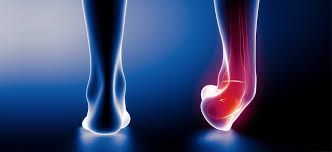
February 23, 2025
An ankle sprain is a common athletic injury and about 20% of acute ankle sprain patients develop chronic ankle instability. Following an acute ankle sprain, deficits in postural control, proprioception, muscle reaction time and strength typically occur, and when these deficits aren’t addressed, this can lead to chronic ankle instability (CAI). Typically if you are unable to complete jumping and landing tasks within 2 weeks of a first time ankle sprain and have lower postural control, you are more at risk of developing a CAI outcome. Chronic ankle instability includes a “loose” ankle (lots of motion occurring at the ankle), and feelings of instability with reduced calf strength and proprioception. How do I know if I have chronic ankle instability? Typically a client will have a history of ankle sprains, report not much rehabilitation after ankle sprain occurring, a dependence on bracing when playing sports, and typically take other precautions against weight bearing, strenuous activities and walking on uneven surfaces. Other symptoms might include ankle stiffness or aching, especially after activities that require a lot of load through the ankle. What do we typically see with chronic ankle instability? Clients will typically have calf strength deficits, possibly poor hip control, reduced balance - both static and dynamic, and reduced ability to hop. What can I do about it or what does conservative management look like? Chronic ankle instability deficits might look different for different people but typically we will: Start off with some balance work Begin strengthening through the calf and hip and progressively load this. We might also brace or tape a client if they have to return to high risk activity (such as jumping and change of direction sports) initially while we build their strength back up. We will then begin some plyo and jumping work to start working on their shock absorption and building some stability. Have any questions about chronic ankle instability, or think this might be you? Give us a call and one of our physiotherapists will be happy to assist.

By Talia Alt
•
September 4, 2024
Physical activity and sport is an integral part of numerous people’s lives and many have suffered an injury which has set them back in their function and/or their ability to play and participate in daily activities. So how do we best equip ourselves to minimise our chance of injury? Ideally we would look at why the injuries are occurring, however to spare you reading an essay we will define injuries in one of two ways: Contact injury Non-contact injury Contact injury: A direct injury which is caused by an external force e.g. tackling or being struck by an object. Indirect injury: this can be due to a physical mechanism such as falling. Or can be due to internal factors which can lead to strains or sprains for example. Here we will focus on strategies to implement to prevent indirect injuries. Rehabilitation from past injuries A large indicator of risk of injury is if you have had a particular injury previously. This is highly attributed to the incomplete recovery due to early cessation of rehabilitation exercises. This could be due to pain levels decreasing, however we also need to look at function! We love seeing pain levels reduce, but rehabilitation exercises also have a large role to play in enabling your levels of function and activity return to pre-injury levels. If you stick to them and check in with your physiotherapist your rehabilitation exercises can also be progressed to potentially get you functioning to levels even better than your pre-injury levels. This all depends on your dedication and appropriateness of your exercises. Seeking input from a physiotherapist will allow you to have many aspects assessed such as, range, strength, control, balance, functional activities and/or more to allow exercises or manual therapy to be tailored to your ability with room to progress along the rehabilitation journey that will also be adapted to your ability with re-assessments of the above mentioned aspects. Adequate warm up Preparing your body prior to your activity increases blood flow and oxygen, increases your range of motion and flexibility, and can improve your performance. Having trouble as to what you should include in your warm-up? Head over to our static vs dynamic stretching’ blog post, instagram reels, or book in with one of our physiotherapists who can assist you. Managing load Sometimes we get excited and increase either the intensity, frequency, and/or weight too quickly when our body, in particular our tendons, are not ready to take that much load. Our bodies take time to adjust to the stresses we put it through. This is where we want to implement the principle of progressive overload. This gives your body the chance to gradually adjust to the stress and slowly build up as necessary. In your sport you may see this through your pre-season training into your season training to ensure that your body is able to withstand the higher weight or intensity in training/games. Load management will be a key strategy used by our physiotherapists to reduce pain levels and increase your participation levels. Strength and functional training Increasing your strength and your ability to protect your joints is imperative to decrease your risk of injury. This can be training specific muscles that you may have found to have strength deficits or can be overall strength levels to optimise your performance levels. Functional training can incorporate similar movement patterns that you may complete in your training or sport. Similarly, it can include balance, proprioception, stability, and agility exercises. Many researchers have found a correlation between balance and proprioception levels and ankle sprains. If you would like some guidance on what this may look like for you feel free to book in with one of our physiotherapists or exercise physiologist who would love to help. Additionally, you can book in for a VALD assessment to get real data on your strength levels and compare it to normative data. Adequate recovery Recovery strategies such as sufficient sleep, hydration, and nutrition are imperative. To aid your recovery efforts post training/games and between sessions compression garments such as NormaTec boots or infrared saunas can also be of benefit, with their ability to increase circulation of blood, possibly reducing the onset of muscle soreness Our recovery room has 2x infrared saunas and 3x NormaTec boots ready for you and your friends! Call us or book online for a casual session or $20 weekly subscription for unlimited access!
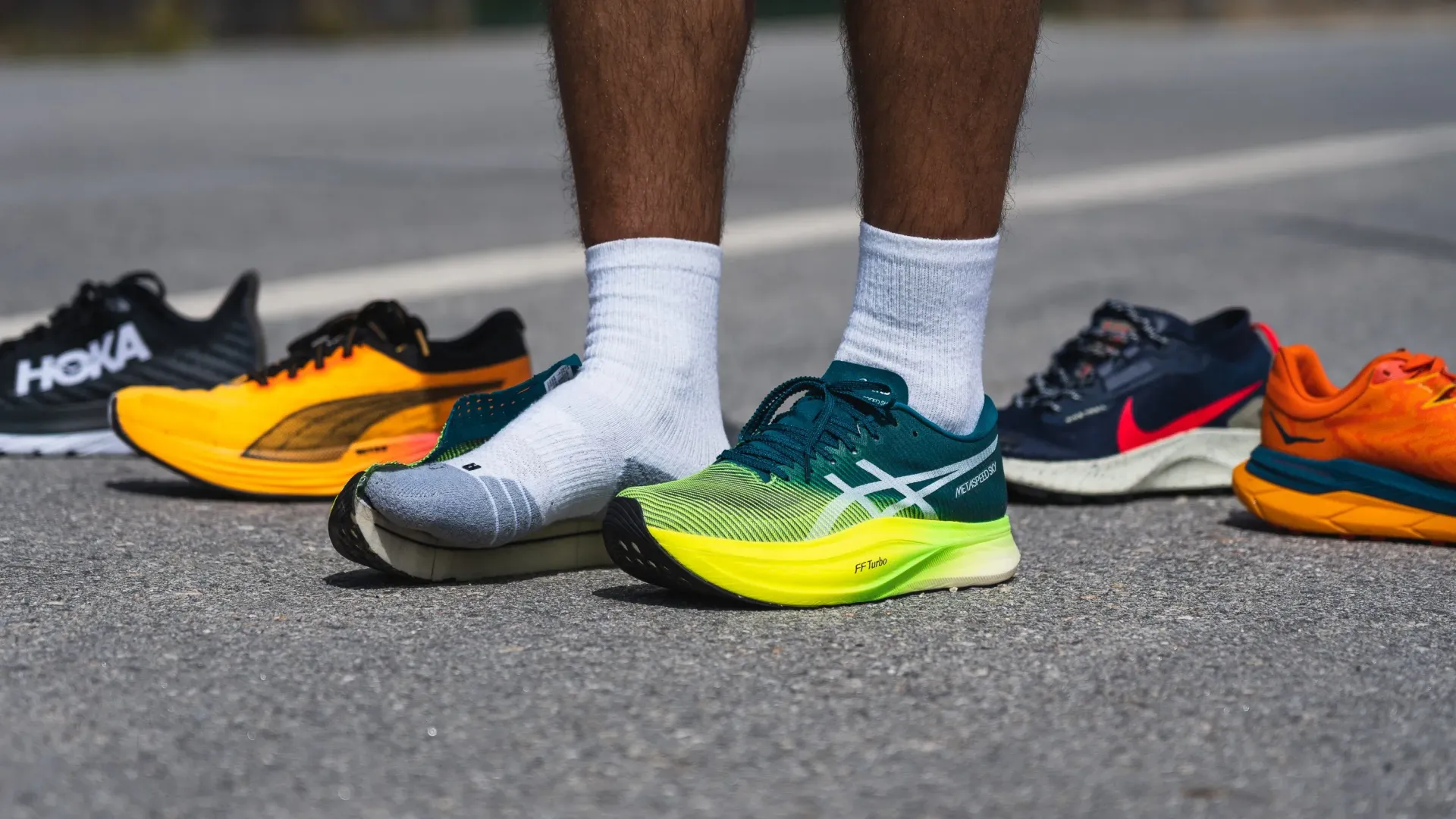
By Talia Alt
•
June 13, 2024
Whether you're a seasoned marathoner, a weekend jogger, or just starting out on your running journey, an important decision you'll make is selecting the right pair of running shoes. The sheer variety of options can be overwhelming, with each brand boasting its own technology and features. But fear not! In this guide, we'll navigate the maze of running shoe options to help you find the perfect fit for your feet and running style. Before diving into the world of running shoes, it's essential to understand your feet. Are you flat-footed or do you have high arches? Do you overpronate, supinate, or have a neutral gait? Knowing your foot type and biomechanics will guide you towards shoes that provide the right support and cushioning. Types of Running Shoes: There are several types of running shoes designed to cater to different needs and preferences: 1. Cushioned Shoes: Better for runners with high arches or those who prefer a plush feel, cushioned shoes provide ample padding to absorb impact and enhance comfort. 2. Stability Shoes: Designed for runners who overpronate, stability shoes offer additional support to prevent excessive rolling in of the foot. 3. Motion Control Shoes: Suited for severe overpronators, motion control shoes feature firmer support to limit excessive foot movement. 4. Minimalist Shoes: Minimalist shoes promote a more natural running experience by providing minimal cushioning and support. They're best suited for experienced runners with strong foot muscles. 5. Trail Shoes: If you enjoy off-road running, trail shoes offer enhanced traction and durability to tackle rugged terrain. 6. Racing Flats: Lightweight and streamlined, racing flats are designed for speed and performance during races or speed workouts. Key Features to Consider: When deciding on running shoes, keep an eye out for the following features: 1. Fit: The most important aspect of a running shoe is how it fits your foot. Ensure there's enough room in the toe box to wiggle your toes, and that the shoe securely hugs your midfoot without feeling too tight. 2. Cushioning: Choose the right level of cushioning based on your preferences and running surface. More cushioning isn't always better; it's about finding the balance between comfort and responsiveness. 3. Support: Look for shoes that offer the right amount of support for your foot type. This might include features like medial posts, arch support, or stability technology. 4. Durability: Consider the durability of the shoe, especially if you're a high-mileage runner. Look for durable materials and reinforced areas in high-wear areas like the outsole and upper. 5. Flexibility: A good running shoe should flex at the forefoot to accommodate the natural movement of your foot during the running gait cycle. Conclusion: Finding the perfect pair of running shoes may require some trial and error, but understanding your feet, running style, and the key features of running shoes will help narrow down your options. Remember to prioritise comfort, support, and durability, and don't hesitate to seek advice from knowledgeable staff at specialty running stores. With the right pair of shoes, you'll be well-equipped to hit the road or trail with confidence and comfort. Happy running!
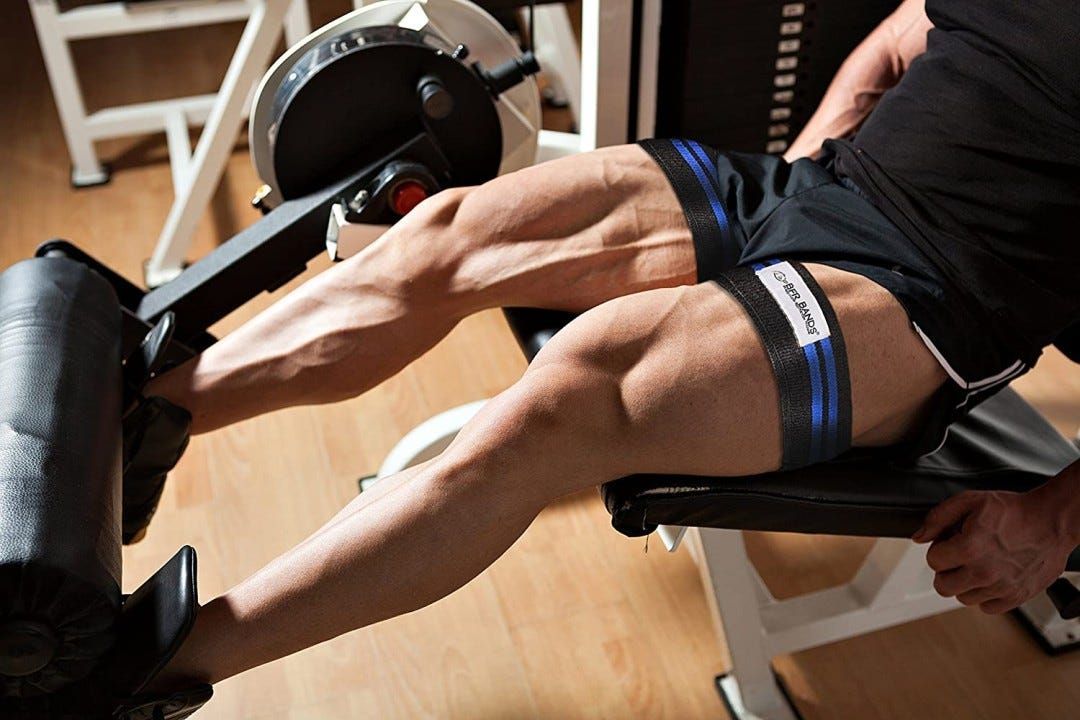
By Talia Alt
•
March 11, 2024
Blood Flow Restriction (BFR) Training
BFR has been used in bodybuilding circles for many years for muscle hypertrophy, however, recently we’ve seen it makes its way into the rehab & general strength & conditioning arena.
It involves the use of an inflatable tourniquet, such as an elastic band or cuff, around the top of the arm and/or leg to restrict blood flow during exercise.
The goal of BFR training is to increase strength gains while lifting lighter loads which reduces the overall stress on the limb and avoids muscle breakdown.
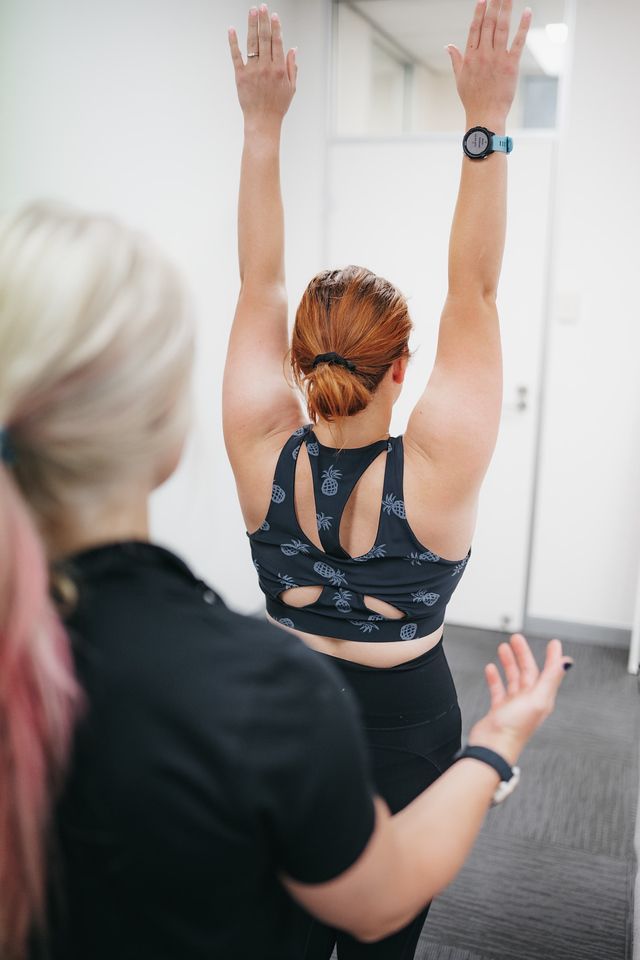
By Talia Alt
•
December 4, 2023
Can I see a physio if I’m not injured or in pain? Definitely! There’s actually some great reasons to see a physio when you’re feeling ok and even have a regular check in schedule. 1. Injury prevention: We can assess range of movement, strength, balance and coordination to assess injury risk and put a plan in place to help prevent issues from arising. 2. Sports performance optimisation: Regular check ins and treatments with your physio can help keep problem areas under control and avoid getting as sore and tight. By having someone who knows your baseline measures and your body, we can help keep you on track and be able to notice if changes are needed in terms of training schedule, rehab exercises and treatment plan. 3. Advice and education: we can help guide your training loads, work place set up, rehab/prehab exercises and activities to avoid when needed. 4. Improved healing and recovery if injuries do occur: As much as we’d like to, we can’t 100% prevent injury. Things happen in the sporting arena and in everyday life that are sometime unavoidable, and can cause pain, inflammation and dysfunction. The good news is that if you do regularly check in with your physio and get regular treatments, it can lead to improved injury recovery and reduced time on the side-lines. 5. Reduced falls and related injuries: One of the most common reasons that older adults are admitted to hospital is due to injuries sustained in a fall. We can help older adults who may be at risk of falling by working on strength, balance and general fitness, as well as managing any pain that may be causing in increased risk of falling. Regular sessions with guidance from our physios can help reduce the likelihood of falling in the first place, and if falls do occur, can help reduce the likelihood of serious injury. In summary Physiotherapy isn’t just for athletes or injured people. By regularly checking in with your physio, you can reduced the likelihood of injury, improve your healing when injuries do occur, optimise sports performance, and just feel better in general! At Active Balance, we want to get your feeling great not just now, but in the long term. What that means for you will be different to the next person, as will the frequency and type of treatments that are recommended. Your physio will work with you and take into account your lifestyle, current functional abilities and goals to work out the best treatment plan for you.
Phone: 0450 877 731
Address: Level 1, 135 Daws Rd St Marys
Business Hours
Mon - Thurs: 9:00 am – 7:00 pm
Fri: 8:00 am – 6:00 pm
Sat: 8:00 am – 12:00 pm
Sun & Public Holidays: Closed
Content, including images, displayed on this website is protected by copyright laws. Downloading, republication, retransmission or reproduction of content on this website is strictly prohibited. Terms of Use
| Privacy Policy

